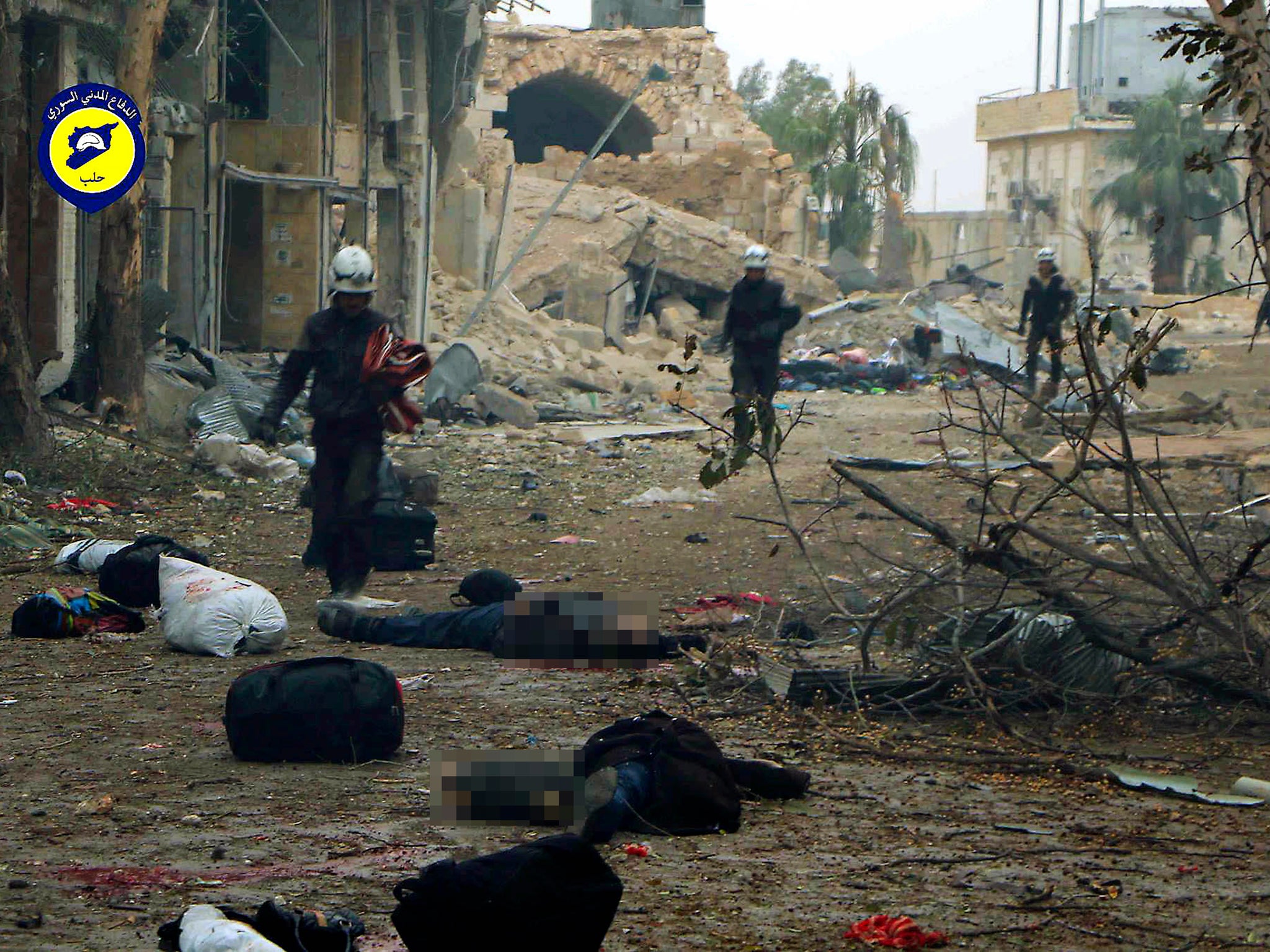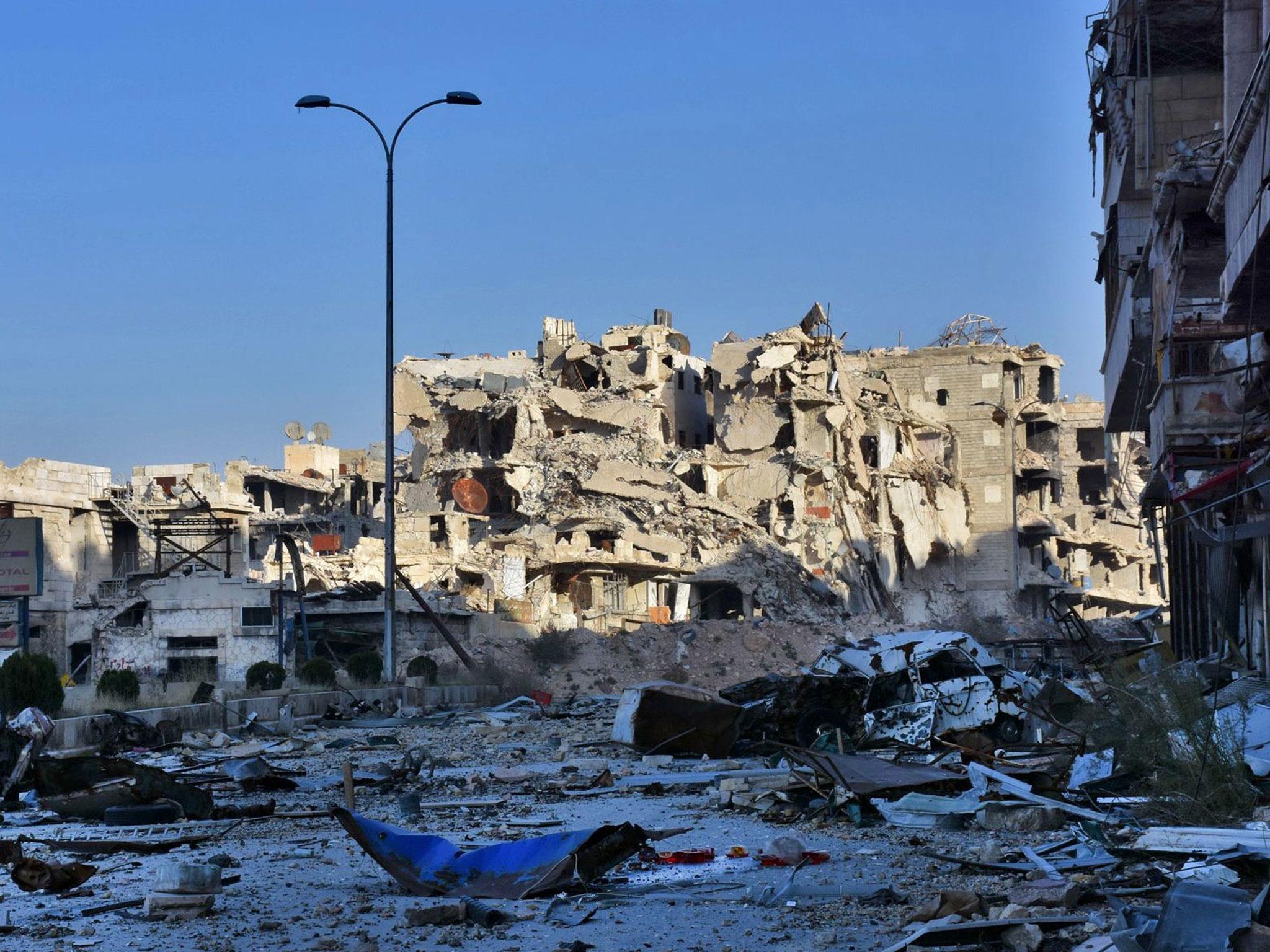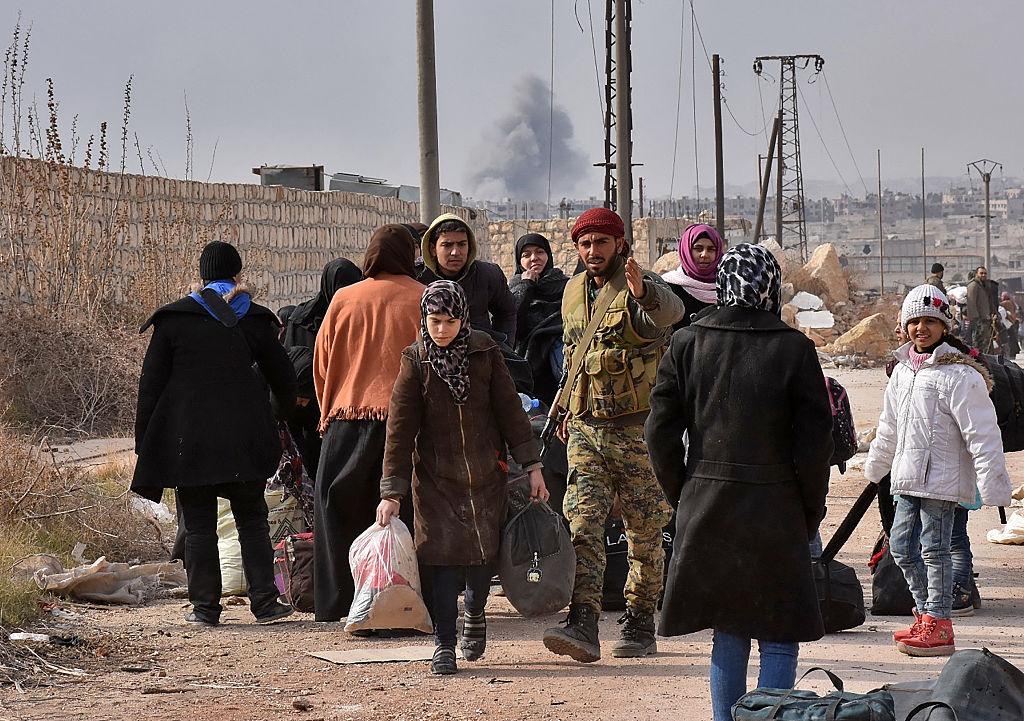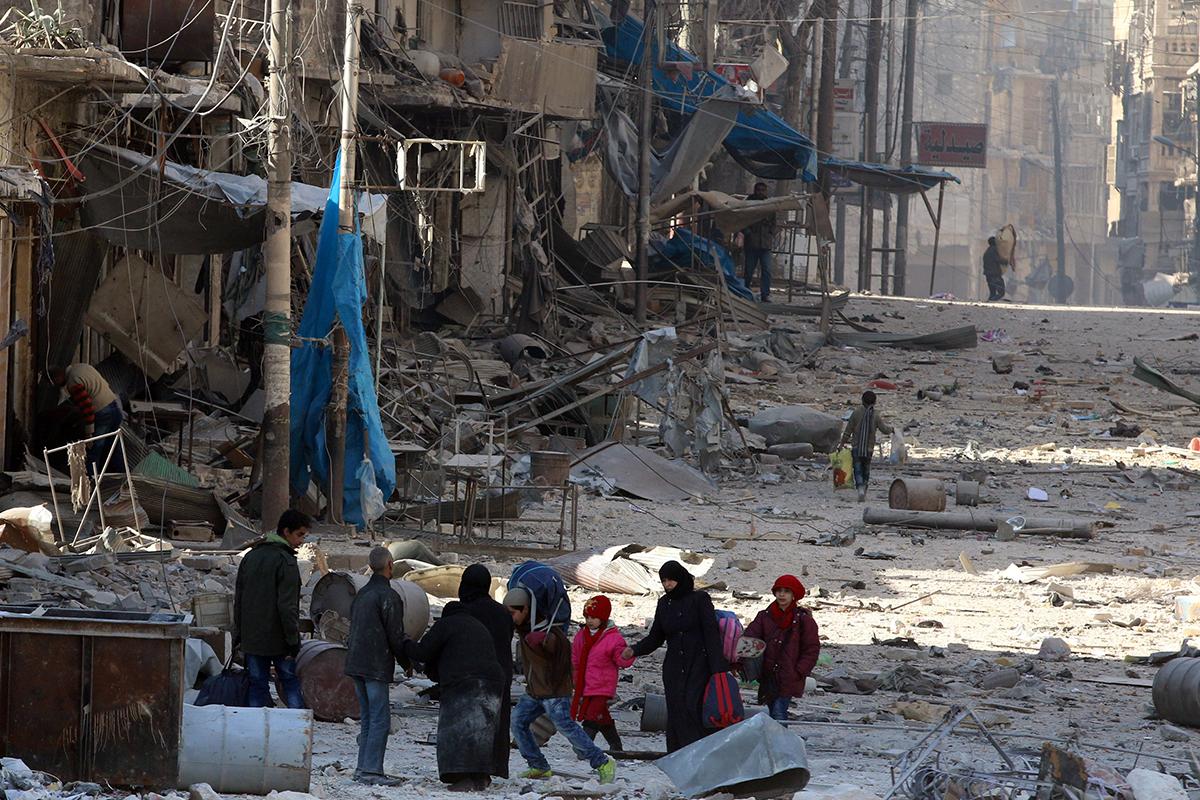So many people are dying in Aleppo the graveyards are now full
Bodies are strewn in the streets as the city struggles to identify and bury the ones it has collected

Your support helps us to tell the story
From reproductive rights to climate change to Big Tech, The Independent is on the ground when the story is developing. Whether it's investigating the financials of Elon Musk's pro-Trump PAC or producing our latest documentary, 'The A Word', which shines a light on the American women fighting for reproductive rights, we know how important it is to parse out the facts from the messaging.
At such a critical moment in US history, we need reporters on the ground. Your donation allows us to keep sending journalists to speak to both sides of the story.
The Independent is trusted by Americans across the entire political spectrum. And unlike many other quality news outlets, we choose not to lock Americans out of our reporting and analysis with paywalls. We believe quality journalism should be available to everyone, paid for by those who can afford it.
Your support makes all the difference.The old Aleppo cemetery filled up a year ago. The new one filled up last week. Now the dead are left in the besieged eastern enclave’s streets, buried in backyards and overwhelming the morgues.
Medical officials secured yet another plot for the dead. But they say they have no way to dig graves with government troops now crashing into opposition-held eastern Aleppo, shelling civilians as they flee and forcing thousands to squeeze into a chaotic, devastated and shrinking pocket of neighbourhoods.
“We have no more room,” said Mohammed Abu Jaafar, the head of the local forensic authority. His department is so overwhelmed, the staff registering the dead pleaded with him not to take any more bodies.
“Even if I were to consider mass burials, I don’t have the machines to do the digging,” he said in a telephone interview.
Dignity in death has been lost as the rebel-held enclave that has held out for four years collapses.

For two weeks, government forces bombarded the area, killing more than 310 civilians, including 42 children, and up to 220 opposition fighters, according to the Syrian Observatory for Human Rights. Then last weekend, ground troops stormed into the 17-square-mile enclave, captured half of it, and advanced on the rest.
UN Emergency Relief Coordinator Stephen O’Brien has pleaded for access to eastern Aleppo, home to some 275,000 people, “before it becomes one giant graveyard.”
In some ways, it already has. Bodies have been left to rot on the streets. Ambulances and rescue vehicles can’t reach them because they have been targeted or because fuel has run out. As troops close in, there are now more, multiple front lines all too dangerous to approach.
Residents of a southern neighbourhood close to a government advance only learned that a body was lying in the ditches when a cat started eating at the corpse.
“A woman from the neighbourhood came and reported it to the morgue. We still don’t know who the corpse belongs to,” Abu Jaafar said, holding his breath. “I swear to God I cried. And I am one who is used to horrific scenes.”

With eastern Aleppo under a tight siege since July, supplies and food are running out.
Just before the ground offensive, government airstrikes knocked out all seven medical facilities in the enclave, including five equipped with trauma and intensive care units. With the government advances, the medical complex where four of the hospitals are located is now only a few hundred metres from conquering troops.
The hospitals were evacuated. The doctors scattered around the strip, setting up small underground medical points to avoid detection but able to give only the simplest basics of care.
“Every wounded is a potential martyr,” said Zakaria Amino, the deputy head of the eastern Aleppo Local Council.
A nurse who works in one underground clinic said some of the wounded have died waiting for medical attention, and because of a shortage of blood. The enclave’s blood bank was hit and shut down. Even worse, some after surgery could not survive the cold weather, she said.

When government forces and their allies took the northern part of the enclave, more than 30,000 people fled into government and Kurdish-controlled parts of the city. Thousands more fled into the remaining rebel-held southern districts, already overwhelmed and running short on all supplies.
On the road fleeing, at least 50 people were killed in government bombings in the past few days. Images of their bodies lying on the ground amid the debris and their packed bags were a reminder of the cruel nature of the conflict, now in its sixth year.
“There are wounded people everywhere. I am afraid I will step on them as I walk,” said Abu Jaafar.
And while the makeshift medical points are overwhelmed and understaffed, they also don’t know where to bury the dead.
Abu Jaafar said they are afraid the piled bodies would expose the clinics’ secret locations. “There are informants and collaborators with the regime everywhere,” he said.
In the past four years, more than 20,000 residents of Aleppo province have been killed, over 80 per cent of them in rebel-held areas, according to the UK-based Syrian Observatory for Human Rights, which has kept a record of casualties.
The eastern districts’ old cemetery was full even before rebels took over the area in 2012. But it was still used amid the heavy fighting and government bombardment as officials looked for another piece of land. They found that last year but it was bombed this summer, and two smaller ones are full.
Since the war intensified, residents of east Aleppo have had to resort to whatever is closest to honor their dead.

“We have buried our dead in our gardens for a while,” said Amino, of the council. When possible, he said people take their dead to the Tababa, or the health authority run by Abu Jaafar – operates the morgue and issues deaths certificates.
Documentation is nearly impossible when the whole population is in flux. Since Saturday, 20 bodies have lain in his morgue unidentified after the shelling of people fleeing the ground advances. Another 70 bodies remain unidentified from the air strikes that preceded the ground assault.
Abu Jaafar posted a picture of a five-month-old girl found under the rubble somewhere in Aleppo two days ago. Her parents are believed dead, and the little girl lost a leg. She is now in the care of the nurses in one of the underground clinics.
“With ambulances overwhelmed and many of them out of order, people are acting as rescuers,” said Abu Jaafar.
All the bodies are believed to be civilians. The fighters bury their dead independently.
With no respect in death, Abu Jaafar said surviving in collapsing Aleppo may be even worse.
A former regime loyalist who defected to the opposition, he said he fears the government may regain control of all of Aleppo.
“It is easier for me to have my house collapse over my head and die than to hand myself over to this government.”
Join our commenting forum
Join thought-provoking conversations, follow other Independent readers and see their replies
Comments